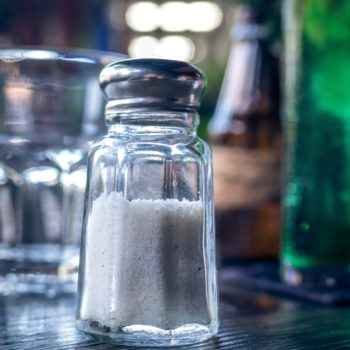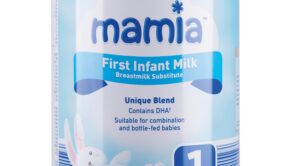Updated scientific recommendations published for older adults’ dietary guidelines

Over 65s are the fastest growing age group in Ireland
20 April 2021
A scientific report published by the Food Safety Authority of Ireland (FSAI) offers updated national recommendations to enhance older people’s nutritional well-being with the ultimate aim of improving health in later life.
Written by the FSAI’s Scientific Committee at the request of the Department of Health for scientific advice, the report provides comprehensive food-based dietary recommendations that, as part of an overall lifestyle approach, enable people over 65 live life optimally to their individual potential.
Over 65s are the fastest growing age group in Ireland, having increased by 19% in the 2016 census to some 630,800 people (13.8% of total population), with expected ongoing increases to a predicted 1.6 million older citizens by 2051. Older adults represent a diverse group, some healthy and fit with a good capacity for physical activity and some living with chronic conditions and diseases, which compromise activity levels and mobility and have an impact on nutritional requirements. This report covers these factors and describes various dietary approaches that are optimal for managing the differences in nutrient requirements of the older population in Ireland.
In general, dietary intake goals for older adults are similar to those for the general adult population, but particular nutritional issues relating to ageing such as, the need for a more protein-dense diet to prevent frailty, require more specific food-based dietary guidelines. Other matters associated with advancing age, such as decreased mobility, frailty and possible dependence on residential care, must also be specifically addressed in dietary recommendations. The 10 nutrients examined with a full set of recommendations are protein, carbohydrate, fibre, fat, B vitamins (folate, vitamin B12, vitamin B6 and riboflavin), vitamin C, vitamin D, calcium, iron and zinc.
Key recommendations from the report include:
- Older adults who are obese with weight-related health problems should receive individual intervention to ensure weight reduction undertaken is beneficial and minimises loss of muscle tissue (slow weight loss with physical activity). Lower risk older adults who are overweight are advised to avoid weight-loss diets in order to prevent loss of muscle mass.
- Older adults at risk of ‘low intake’ dehydration need adequate amount of drinks. Women need 1.6ltrs and males 2ltrs per day (unless a clinical condition to require fluid restriction).
- Strong tea should only be consumed between meals and not during meals, as it interferes with absorption of iron and zinc.
- Sense of taste diminishes with age and can lead to increased salt intake; therefore, consumption of salty foods should be avoided and alternatives such as herbs and spices can be used to increase flavour.
- High quality proteins to stimulate muscle protein: Healthy older adults should eat a more protein-dense diet – foods such as meat, poultry, fish, dairy and eggs.
- Adequate calorie intake to prevent development of frailty, muscle loss (sarcopenia) and undernutrition.
- Diets should contain high fibre carbohydrates, but low in free sugars. The average intake of carbohydrates are at the lower end of recommended consumption range whilst one third of older people exceed recommended free sugar intake.
- A daily 15 µg vitamin D supplement is now recommended by the Department of Health for all older adults in Ireland. This report provides specific details on the range of dietary intake recommended for vitamin D in older adults, which vary according to ability to obtain some of this vitamin from sunlight exposure.
- Fortified foods are a good source of B vitamins (B12, folate, B6 and riboflavin) and vitamin D; whilst unsweetened orange juice, salads, fruit and vegetables are reliable daily food sources of vitamin C.
Dr Pamela Byrne, chief executive, FSAI said it is important to ensure robust science underpins the development of food-based dietary guidelines that include healthy eating and nutritional recommendations tailored specifically for this cohort.
“This report sets out a number of science-based recommendations that will underpin national guidelines being prepared by the Department of Health, to support optimal nutritional status and health of older adults in Ireland,” she said. “Due to considerable variations in the ageing process, food-based dietary guidelines are best tailored to functional capacity rather than chronological age,”
The report is freely available to view and download at https://www.fsai.ie/DietaryGuidelines_OlderAdults_Ireland/



 Print
Print






Fans 0
Followers